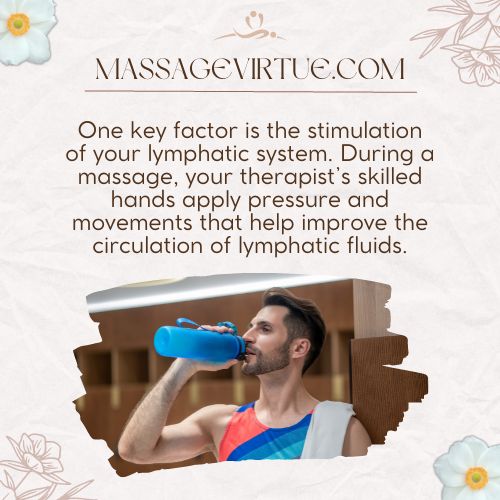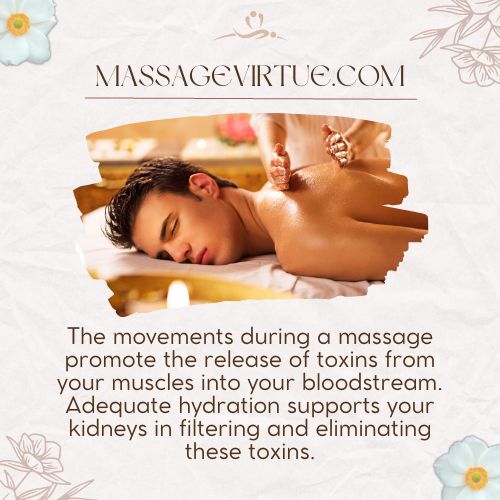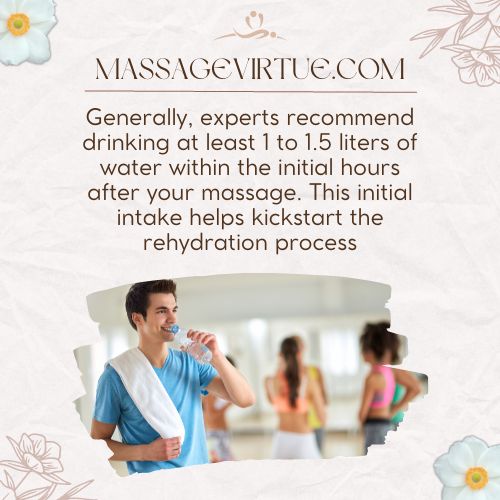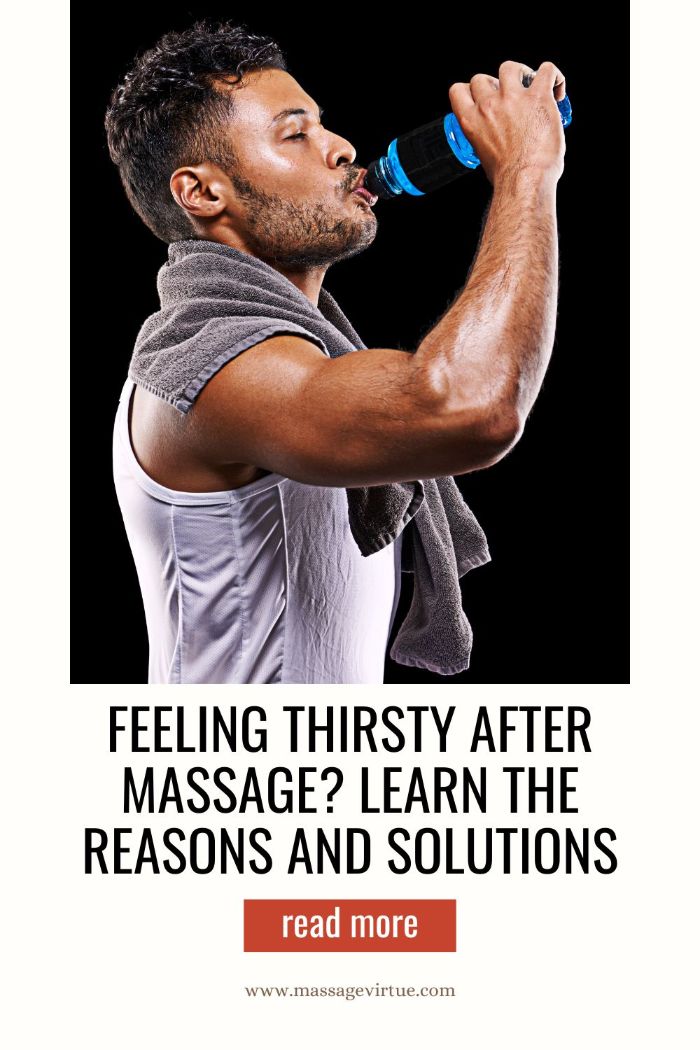Have you ever wondered why you suddenly feel thirsty after a relaxing massage session?
It’s not uncommon to experience this sensation, and there’s a scientific explanation behind it. In this article, we’ll delve into the reasons why you feel thirsty after a massage and the importance of staying hydrated during this time.
Whether you’re a massage enthusiast or a newbie, understanding the connection between massage and thirst can contribute to a more enjoyable and beneficial experience.
Why Do You Feel Thirsty After a Massage?
The sensation of thirst that follows a massage can be attributed to several factors.

One key factor is the stimulation of your lymphatic system. During a massage, your therapist’s skilled hands apply pressure and movements that help improve the circulation of lymphatic fluids.
This stimulation encourages the removal of waste products from your body, which is a positive effect of the massage.
However, as waste products are released, your body may need to expel them, leading to an increase in urine production. This process contributes to a loss of fluids and electrolytes, triggering your body’s thirst response.
Why Do You Drink Water After a Massage?
Hydrating your body after a massage brings forth a multitude of benefits. Let’s explore these benefits.
1. Replenishes Lost Fluids
During a massage, your lymphatic system gets a boost, aiding in the removal of waste products. This process, while beneficial, can lead to fluid and electrolyte loss.
Drinking water replenishes these lost fluids, ensuring optimal bodily functions and helping prevent dehydration.
2. Enhances Toxin Flush
The movements during a massage promote the release of toxins from your muscles into your bloodstream.

Adequate hydration supports your kidneys in filtering and eliminating these toxins more efficiently, leaving you feeling refreshed and revitalized.
3. Supports Muscle Recovery
Post-massage, your muscles might experience increased circulation and tension release.
Hydration assists in transporting essential nutrients to muscle tissues, aiding in their recovery and reducing the risk of post-massage soreness.
How Much Water Should You Drink After a Massage?
The amount of water you should consume after a massage depends on various factors, including the massage type and your individual needs.

Generally, experts recommend drinking at least 1 to 1.5 liters of water within the initial hours after your massage. This initial intake helps kickstart the rehydration process. Pay attention to your body’s signals and continue sipping water throughout the day to stay adequately hydrated.
Remember, the goal is to maintain a pale yellow urine color, an indicator of proper hydration.
Lemon Water After Massage
While plain water is the go-to choice for rehydration, some people opt for lemon water due to its added benefits.
Lemon water not only quenches your thirst but also provides a dose of vitamin C and antioxidants. These elements can help combat the oxidative stress that your body might experience after a massage.
However, if you’re trying lemon water, it’s a good practice to wait a little while after your massage before introducing acidic substances to your stomach.
What Happens if You Don’t Drink Water After a Massage?
If you fail to hydrate adequately after a massage can have undesirable effects. Let’s take a closer look at these effects:
| Effects | Explanation |
| Muscle Cramps | Without proper hydration, your muscles may be prone to cramping, causing discomfort and hindering your relaxation benefits. |
| Headaches and Dizziness | Dehydration can trigger headaches and dizziness, diminishing the positive after-effects of your massage experience. |
| Decreased Muscle Recovery | Hydration is crucial for muscle recovery post-massage. Inadequate water intake might delay your body’s healing process and prolong muscle soreness. |
| Impaired Waste Removal | The massage process releases toxins that need to be flushed out. Dehydration slows down this elimination, potentially leaving you feeling fatigued and sluggish. |
Conclusion
To sum it up, don’t underestimate the power of a glass of water after your massage.
It’s your body’s way of saying thanks, helping you stay refreshed, aiding in recovery, and ensuring the massage’s goodness lingers longer.
Keep that water within arm’s reach, and sip your way to a more revitalized you!
FAQs
Does Deep Tissue Massage Make You Thirsty?
Absolutely, a deep tissue massage can trigger thirst. The pressure and manipulation during the massage release waste, which might lead to fluid loss and a desire for water.
Do You Feel Dehydrated After a Massage?
Certainly, it’s not uncommon to feel dehydrated post-massage due to heightened circulation and toxin removal.
Adequate hydration is vital to counterbalance this outcome and assist in your body’s recuperation process. Ensuring you drink enough water can optimize the benefits of your massage experience.
Does Lymphatic Drainage Massage Make You Thirsty?
Yes, lymphatic drainage massage can make you thirsty. It encourages detoxification, potentially causing fluid and electrolyte loss and prompting your body to crave hydration.
Why Can’t You Shower After Deep Tissue Massage?
It’s advisable to steer clear of showering immediately after a deep tissue massage. The pressure applied during the massage can result in minuscule muscle tears.
Giving your muscles a few hours to mend before subjecting them to the heat of a shower is a prudent choice. This delay aids in their recovery process and prevents potential discomfort or inflammation.


